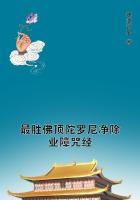Continue to see him. Learn, if possible, how far he may be trusted;but do not fix any time, as yet, for the desired audience. I wish to apprise the King, first, of his interview with you, Princess. This conversation does not agree with what he and Mirabeau proposed about the King's recovering his prerogatives. Are these the prerogatives with which he flattered the King? Binding him hand and foot, and excluding him from every privilege, and then casting him a helpless dependant on the caprice of a volatile plebeian faction! The French nation is very different from the English. The first rules of the established ancient order of the government broken through, they will violate twenty others, and the King will be sacrificed, before this frivolous people again organise themselves with any sort of regular government.'
"Agreeably to Her Majesty's commands, I continued to see Barnave. Icommunicated with him by letter,' at his private lodgings at Passy, and at Vitry; but it was long before the Queen could be brought to consent to the audience he solicited.
[Of these letters I was generally the bearer. I recollect that day perfectly. I was copying some letters for the Princesse de Lamballe, when the Prince de Conti came in. The Prince lived not only to see, but to feel the errors of his system. He attained a great age. He outlived the glory of his country. Like many others, the first gleam of political regeneration led him into a system, which drove him out of France, to implore the shelter of a foreign asylum, that he might not fall a victim to his own credulity. I had an opportunity of witnessing in his latter days his sincere repentance; and to this it is fit that I should bear testimony.
There were no bounds to the execration with which he expressed himself towards the murderers of those victims, whose death he lamented with a bitterness in which some remorse was mingled, from the impression that his own early errors in favour of the Revolution had unintentionally accelerated their untimely end. This was a source to him of deep and perpetual self-reproach.
There was an eccentricity in the appearance, dress, and manners of the Prince de Conti, which well deserves recording.
He wore to the very last--and it was in Barcelona, so late as 1803, that I last had the honour of conversing with him--a white rich stuff dress frock coat, of the cut and fashion of Louis XIV., which, being without any collar, had buttons and button-holes from the neck to the bottom of the skirt, and was padded and stiffened with buckram. The cuffs were very large, of a different colour, and turned up to the elbows. The whole was lined with white satin, which, from its being very much moth-eaten, appeared as if it had been dotted on purpose to show the buckram between the satin lining.
His waistcoat was of rich green striped silk, bound with gold lace;the buttons and buttonholes of gold; the flaps very large, and completely covering his small clothes; which happened very apropos, for they scarcely reached his knees, over which he wore large striped silk stockings, that came half-way up his thighs. His shoes had high heels, and reached half up his legs; the buckles were small, and set round with paste. A very narrow stiff stock decorated his neck. He carried a hat, with a white feather on the inside, under his arm. His ruffles were of very handsome point lace. His few gray hairs were gathered in a little round bag. The wig alone was wanting to make him a thorough picture of the polished age of the founder of Versailles and Marly.
He had all that princely politeness of manner which so eminently distinguished the old school of French nobility, previous to the Revolution. He was the thorough gentleman, a character by no means so readily to be met with in these days of refinement as one would imagine. He never addressed the softer *** but with ease and elegance, and admiration of their persons.
Could Louis XIV. have believed, had it been told to him when he placed this branch of the Bourbons on the throne of Iberia, that it would one day refuse to give shelter at the Court of Madrid to one of his family, for fear of offending a Corsican usurper!]
"Indeed, Her Majesty had such an aversion to all who had declared themselves for any innovation upon the existing power of the monarchy, that she was very reluctant to give audience upon the subject to any person, not even excepting the Princes of the blood. The Comte d'Artois himself, leaning as he did to the popular side, had ceased to be welcome.
Expressions he had made use of, concerning the necessity for some change, had occasioned the coolness, which was already of considerable standing.
One day the Prince de Conti came to me, to complain of the Queen's refusing to receive him, because he had expressed himself to the same effect as had the Comte d'Artois on the subject of the Tiers Etat.
"'And does Your Highness,' replied I, 'imagine that the Queen is less displeased with the conduct of the Comte d'Artois on that head than she is with you, Prince? I can assure Your Highness, that at this moment there subsists a very great degree of coolness between Her Majesty and her royal brother-in-law, whom she loves as if he were her own brother.
Though she makes every allowance for his political inexperience, and well knows the goodness of his heart and the rectitude of his intentions, yet policy will not permit her to change her sentiments.'














